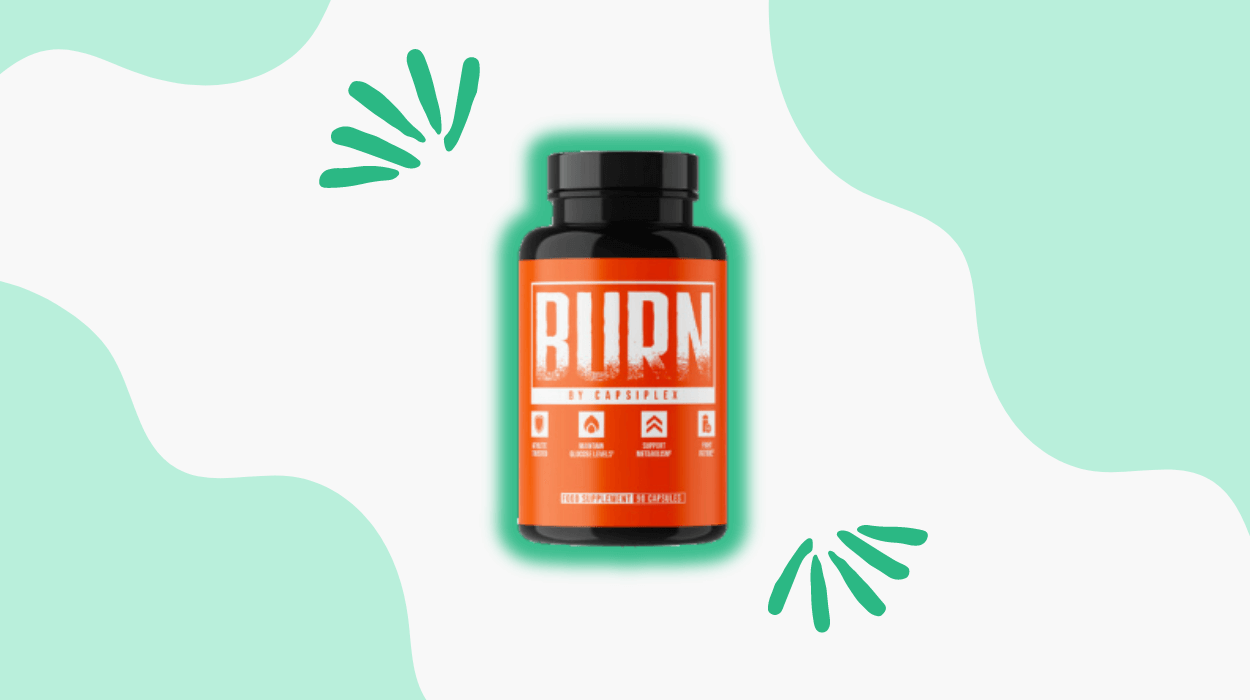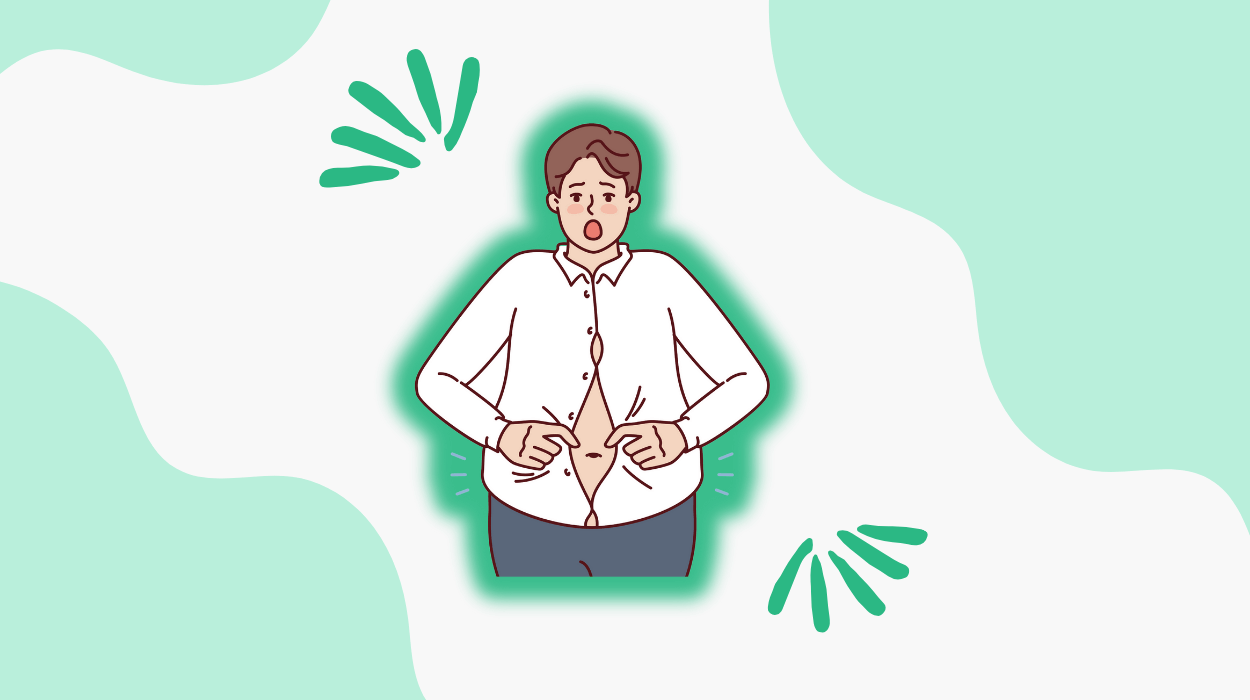

Excessive accumulation of abdominal fat may negatively impact overall health. Belly fat may impose various health conditions like heart problems, diabetes symptoms, and metabolic syndrome.
Your age might affect how much fat you gain around your belly area. It could slow down your metabolism and cause some muscle loss, which could be the reason for having excess belly fat. With an inactive lifestyle and stress, losing weight around your belly could become more challenging.
Eliminating belly fat requires a holistic approach, including a nutritional diet, regular physical activity, and adequate rest. However, there are simple tips that may work as a powerful tool to reduce belly fat.
Belly fat, also called abdominal fat or visceral fat, is the accumulation of fatty tissue around the midsection and internal organs.
It could be classified into two main types:

Processed foods are often loaded with fats, sugars, sodium, and additives that could disrupt intestinal balance and contribute to inflammation, particularly around the waistline.
Consider the following table outlining processed foods to avoid and healthier alternatives to incorporate:
| Processed Foods to Avoid | Healthier Alternatives |
|---|---|
| White bread | Whole grain bread |
| Frozen meals | Homemade meals with fresh ingredients |
| Instant noodles | Zucchini noodles with homemade sauce |
| Cakes and cookies | Energy balls made with nuts and dates |
| Chips | Baked kale chips or homemade popcorn |
Processed foods lack essential nutrients, leading to increased calorie consumption to feel satiated and causing blood sugar spikes that result in excess fat storage.
Choosing whole, unprocessed foods like fresh fruits, vegetables, and lean proteins may provide vital vitamins and nutrients that support healthier weight loss.
Refraining from consuming food late at night could be beneficial in combating belly fat accumulation and supporting weight management goals.
Late-night eating could hinder the body’s ability to effectively process and burn calories, leading to fat storage, especially around the midsection.
Eating at night may disrupt your blood sugar levels due to the slower glucose response in the evening. Thus, having your last meal at least two to three hours before bedtime may optimize fat-burning and improve sleep quality, allowing for a natural fasting period overnight.
Quality sleep may regulate hormones like leptin and ghrelin, which control appetite and cravings, preventing overeating and unhealthy food choices. Getting sufficient sleep may lower cortisol levels, reducing stress and the tendency to store belly fat associated with high cortisol levels.
A restful eight-hour sleep each night is essential to regulate hunger and metabolism-related hormones, which are crucial for supporting the body’s natural fat-burning mechanisms and reducing belly fat.
Quality sleep is linked to lower risks of conditions like diabetes and heart disease. Thus, establishing a consistent sleep routine, creating a calming sleep environment, and avoiding screens before bedtime are essential steps to enhance sleep quality.
Foods and drinks high in sugar often lack essential nutrients. Consuming these items can lead to excessive calorie intake without feeling satiated.
Highly refined sugars found in soda, candy, and processed foods could increase insulin levels in the body. Elevated insulin levels promote fat storage around the abdomen and can contribute to fat accumulation in the liver.
You could lower the risk of developing type 2 diabetes and heart disease by prioritizing whole foods and natural sugars found in fruits.
Intermittent fasting involves cycling between the duration of eating and fasting, which could help control calorie intake and optimize fat-burning processes. Fasting could help regulate insulin levels, increase metabolic rate, and promote fat loss, particularly targeting belly fat.
Consuming probiotics could help promote optimal gut health and reduce belly fat. Research suggests probiotic strains can help prevent fat accumulation around the abdominal area. However, consulting a healthcare provider could help determine the most suitable probiotic for your health needs.
Alcohol is calorie-dense, with about 7 calories per gram, almost as high as fat, which has 9 calories per gram. Consuming alcoholic beverages could increase overall calorie intake, promoting fat storage, mainly around the abdominal area.
The liver metabolizes alcohol over other nutrients, including fat. It could slow down the metabolism of fats, leading to their accumulation in the body, including the visceral fat around the abdomen.
Excessive alcohol consumption can disrupt hormonal balance, including insulin sensitivity and cortisol levels. These hormonal imbalances can promote fat storage, especially in the abdominal region, making it harder to lose belly fat.
Research suggests that increased alcohol consumption can cause sleep disturbances. Poor sleep quality could affect hunger hormones, increase urges for unhealthy foods, and hinder weight loss efforts, including reducing belly fat.
During high-stress levels, the body releases cortisol, which could increase appetite and lead to fat storage in the abdominal area.
Practices such as mindfulness activities like meditation, yoga, and deep breathing exercises may help decrease cortisol levels and the impact of stress on belly fat accumulation.
Relaxing activities like taking leisurely walks, listening to music, and reading might help reduce stress and promote a flat stomach.
Aerobic exercises or cardio workouts such as swimming, cycling, or running can help burn calories and reduce overall body fat. These activities could elevate your heart rate and increase energy expenditure, contributing to weight loss.
Regular aerobic exercise may boost your metabolism, helping your body burn more calories even at rest. The increased metabolic rate could help create a calorie deficit, which is crucial for effectively eliminating belly fat.
Cardio workouts may strengthen your heart and improve circulation, supporting long-term weight loss goals.
Water may help curb unnecessary snacking by differentiating between thirst and hunger signals. Drinking water before meals could also help control food intake, promoting a feeling of fullness and potentially reducing overall calorie consumption.
Water is crucial for various metabolic processes, including the breakdown of nutrients. Staying hydrated might boost metabolism, helping efficiently burn calories and potentially supporting weight loss efforts.
Whole grains, fruits, and vegetables are fiber-rich foods that could help you feel full for longer, reducing the chance of overeating or unnecessary snacking. Fiber may also support a healthy gut, essential in weight management.
Must Read:
Belly fat accumulation could be influenced by metabolism, genetics, and food choices. Thus, losing your belly could help you regain control of your life.
Shedding belly fat overnight may not be possible as it requires long-term strategies such as prioritizing quality sleep, managing stress, and engaging in aerobic exercise.
Stay mindful about your calorie intake if you are trying to burn stubborn belly fat. Avoid eating processed or junk food, which might contribute to high-calorie consumption.
You can also try fasting, which may improve metabolic rate while increasing fat burning. Prioritize your gut health as it supports healthy weight management by improving nutrient absorption.
Consulting a certified dietician may help you organize your meals as per your body’s nutritional requirements while supporting sustained weight loss results.
Tyler Read earned an undergraduate academic degree from Sonoma State University, California and is a certified personal trainer (CPT) with NASM (National Academy of Sports Medicine). With over 16 years of experience, Tyler has trained clients both online and in-person.
He is passionate about helping others turn their love for fitness into a career. Tyler has worked with many local and commercial gyms before establishing his successful private personal training business, which he continues to operate.
